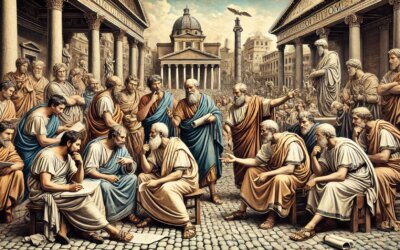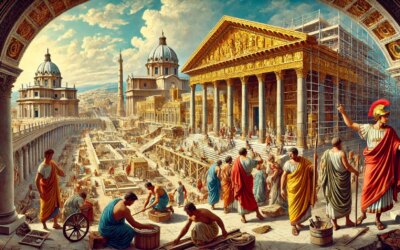The Mind Behind the Throne
Lucius Annaeus Seneca, better known as Seneca the Younger, stands as one of Rome’s most celebrated philosophers. Living between 4 BCE and 65 CE, Seneca was more than a thinker—he was a statesman, playwright, and advisor to one of Rome’s most infamous emperors, Nero. His life and works bridged the serene world of Stoic reflection and the dangerous arena of imperial politics.
Stoicism in the Heart of Empire
Born in Corduba (modern-day Córdoba, Spain), Seneca was educated in Rome, where he was deeply influenced by Stoic philosophy. Emphasizing self-discipline, reason, and virtue over external wealth and power, Stoicism provided a guiding framework for his life, especially during the many trials he endured, including exile and accusations of conspiracy.
Philosopher and Politician
Despite his philosophical leanings, Seneca’s life was anything but withdrawn. In 49 CE, he was recalled from exile by Agrippina the Younger to tutor her son, Nero. When Nero ascended the throne, Seneca became a key figure in the imperial administration, guiding the young emperor during the early, more stable years of his reign.
During this period, Seneca authored many of his most influential essays and letters, including the Letters to Lucilius, which explore ethical questions, the nature of time, mortality, and the pursuit of wisdom.
Conflict Between Ideal and Reality
Seneca’s involvement in politics has long puzzled historians. While he preached detachment from wealth, he accumulated a vast fortune. While he emphasized tranquility, he navigated the treacherous intrigues of Nero’s court. Some see this as hypocrisy; others argue he sought to wield influence for good in a corrupt environment.
The Pisonian Conspiracy and Forced Suicide
Seneca’s end came in 65 CE, when he was implicated—possibly falsely—in the Pisonian Conspiracy, a plot to assassinate Nero. Ordered to take his own life, Seneca met death with Stoic calm, opening his veins and reportedly reciting philosophical reflections until the end. His controlled and contemplative exit became a model of Stoic death and moral conviction.
Enduring Influence
Seneca’s works continued to influence Western thought for centuries. Renaissance humanists rediscovered his writings, and his ideas resonate in modern self-help and mindfulness movements. Though embedded in imperial Rome, his teachings on anger, adversity, and the value of time remain remarkably relevant.
More Than a Roman Thinker
Seneca was not merely a philosopher confined to books—he was a thinker who dared to live his philosophy amidst one of the most dangerous courts in history. His life was a paradox of virtue and compromise, making him one of the most human and enduring voices of ancient Rome.






